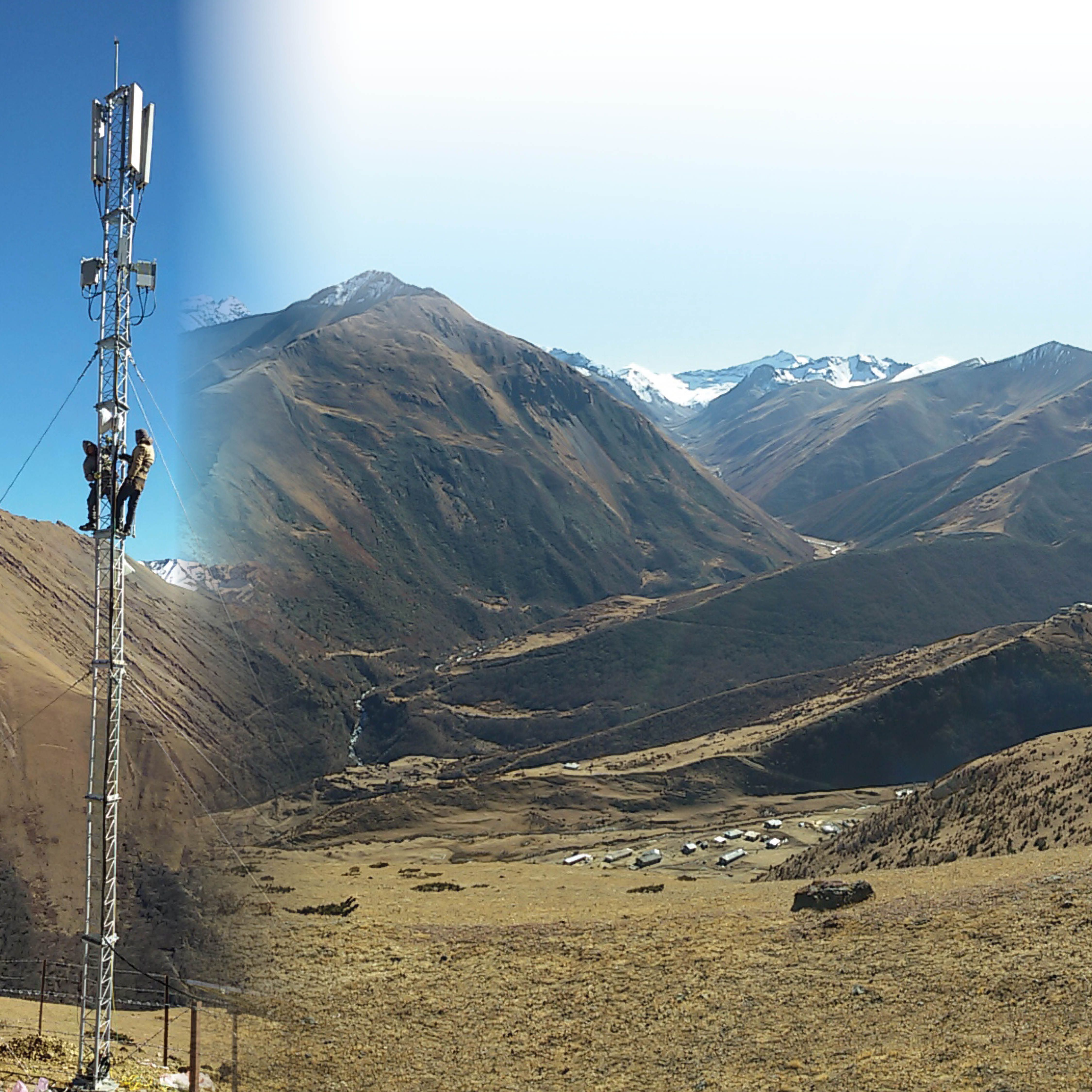
Dechen Wangdi
Transforming Rural Communities
Last year in the peak summer, my colleagues and I were on a 19-day tour on foot to Soe, Lingzhi and Naro Gewogs. This was a life-changing trip for us, as we saw places and experienced cultures like never before. As we descended the steep and rugged terrains and made our way to Naro–a two-full-day trip–we crossed paths with a group of young men. Unlike us, they didn't have a caravan of horses, and their loads were tied to their backs. Knowing how expensive it is to hire porter ponies for this trip, I immediately thought of our privilege. What I can remember noticing first from the encounter were their attires–the sky-blue polo t-shirt and baseball caps and the familiar Tashicell logo on them. They were a group of contractors and workers making their way up to Lingzhi for a maintenance job. Their pace was swift, and after a short conversation, they continued northward without wasting any time.
Lingzhi was as remote a place could get on this earth, like its sister Gewogs, Soe and Naro. There was no motorable road, and the journey was through an endless wilderness. And yet what was almost mind-boggling to me was the region's electricity and mobile phone connection. To forget the pains in our feet and the struggle to breathe in the mountain air, our horseman indulged in video calls with his loved ones at every rest break. My colleagues and I went Live on Instagram, showing off the views of the mountains in front of us.
Mobile connectivity in the remote pockets of Bhutan is a gift that not many of us realise – it is an integral part of achieving the nation's digital transformation. However, it is challenging; most times, it's not a feasible business venture for cellular companies to expand their service to rural areas. Yet, they remained steadfast in their commitment to connecting every village with internet and phone networks. The young men we met were a testament to a new digital age; their resolve to get the work done amidst the hardship and scarce resources was worthy of praise.
As of 2022, Bhutan has an 87% penetration of mobile connectivity. However, even today, many rural and isolated settlements do not enjoy the internet and phone calls like the rest. Rugged terrains, inadequate road connection and sparse population characterise these areas. Further, using diesel fuel as the power backup is also not feasible due to Bhutan's emphasis on environmental preservation. Moreover, the traditional mobile network cannot be deployed in these areas, and planning a radio frequency is extremely difficult on the mountain. Another hurdle in those areas is the absence of electricity – not to mention the colossal capital for infrastructure development.
Despite the hurdles and moral dilemmas, cellular companies like TashiCell are doing their best to keep up with the needs of the hour. For example, TashiCell teamed up with a network company, VNL, to provide 13 rural locations with low-power base station-beaming GSM voice and data signals, which impacted around 20 villages and 2000 citizens. Furthermore, as Bhutan's only private cellular company, TashiCell is providing an alternative to the users and relieving the network congestion; the tariffs for talk time and data have drastically reduced due to market competition. As the remote and isolated pockets connect with the rest of the country and contribute to rural development, the nation benefits in the larger picture.
